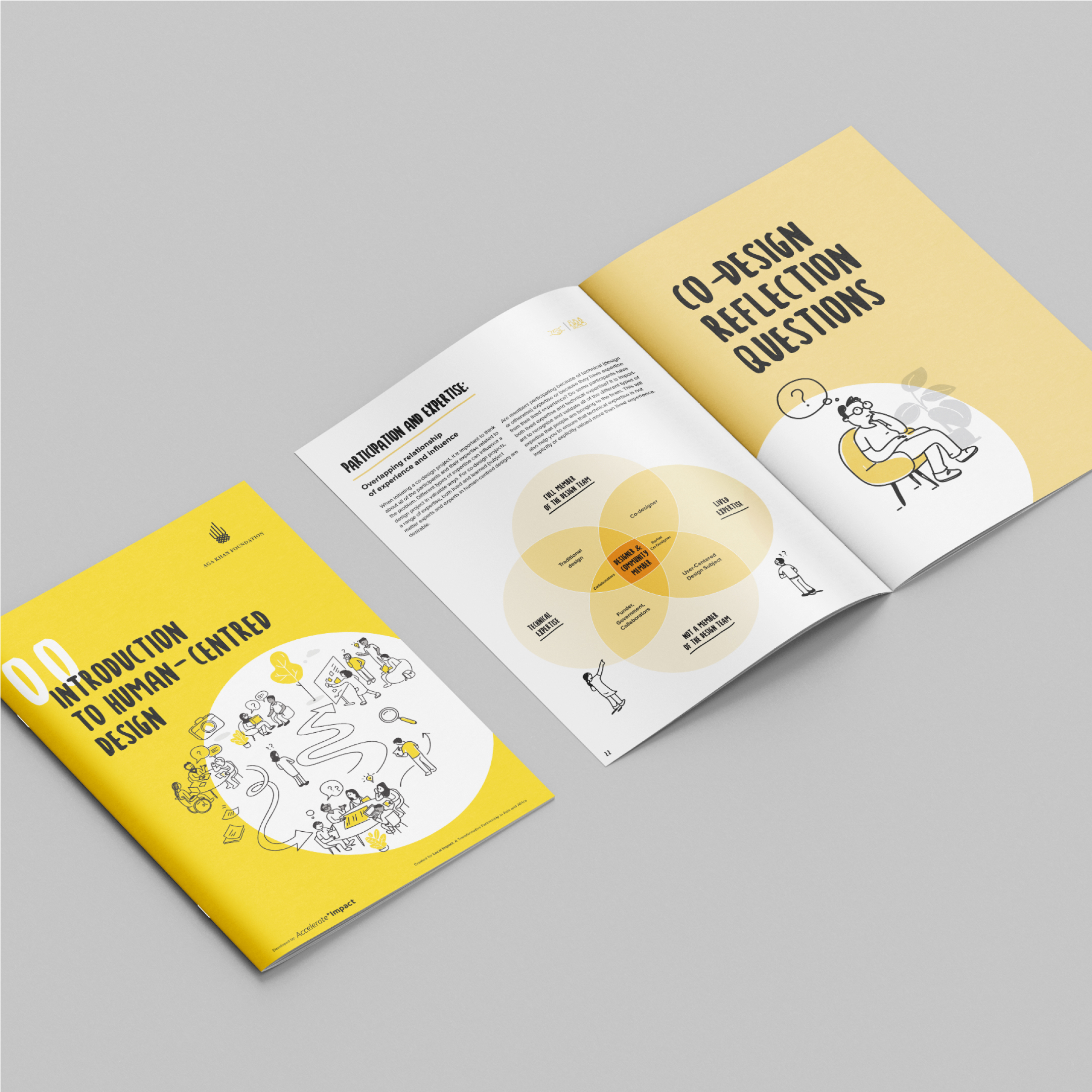
Investing in community-led innovation: AKF launches Human-Centred Design coaching course in East Africa
AKF's new nine-month professional development course will equip staff and civil society leaders with design coaching skills

I vividly remember my visit to Smart Girls‘ Centre, a civil society organisation (CSO) in Kampala, Uganda, focused on skilling and upskilling girls in non-traditional trades. There I saw CEO Jamila Mayanja working with eight learners to design solar-light school bags, which would enable the solar light to charge as the girls walked to and from school to support their learning at home in the evenings.
The ease the girls had in sharing their challenges and coming up with their own solutions was unique. It further solidified my feeling of the role that Human Centred Design (HCD) has in strengthening our ability to create more tailor-made solutions to the complex challenges the communities we serve face. As the Aga Khan Foundation’s (AKF) Design and Innovation Advisor based in East Africa, my day-to-day involves exploring how to promote HCD and its role in problem-solving and innovation. My experience at Smart Girls led me to ask: how might we inspire others to adopt HCD and embed the mindset and approach in their work and across AKF?
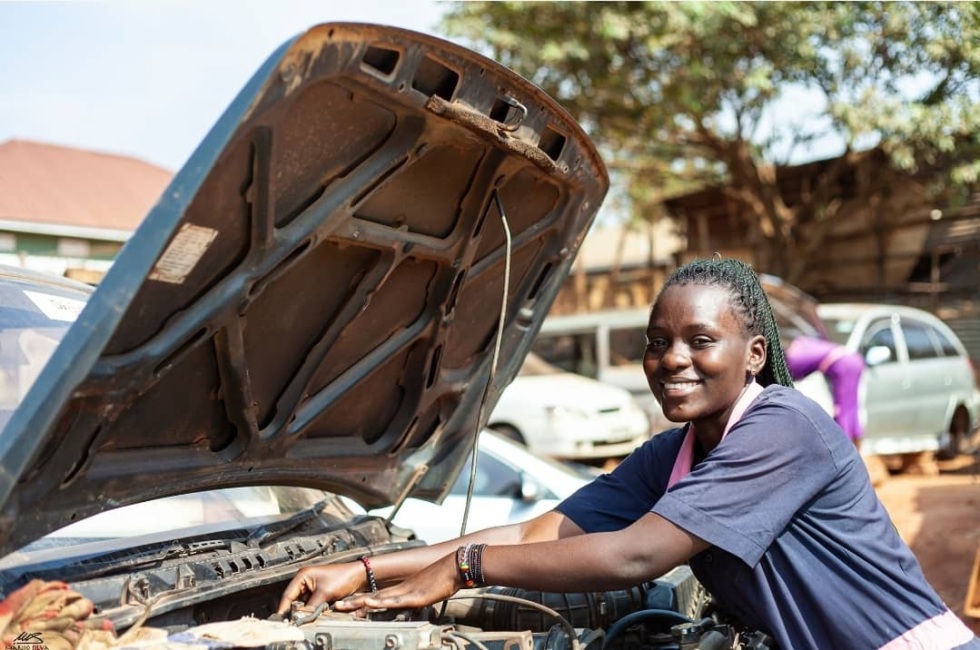
Each year, Smart Girls trains more than 200 young women and girls through their economic programmes
Smart Girls Uganda

Smart Girls Uganda is focused on skilling and upskilling girls in non-traditional trades
Smart Girls Uganda
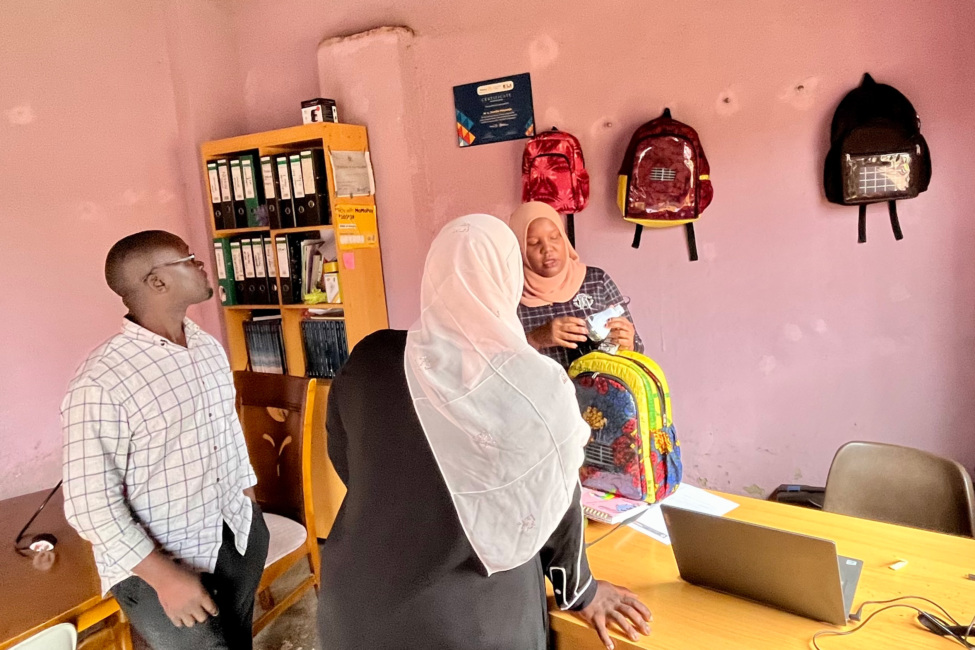
Visit to Smart Girls’ Centre in Kampala where CEO, Jamila, shows off the girls’ latest innovation, a solar light school bag
Aga Khan Foundation
/3
Human Centred Design (HCD) is a mindset and creative approach to problem solving. It enables communities to deeply explore challenges and identify new ways of solving them through highly participatory methods of inquiry and idea generation. HCD is unique in that it places people at the centre of the development process, leading to more tailored and responsive solutions. This approach is a core component of AKF’s work with community and partners, whether it may be to design a new climate resilience initiative or to tackle learner absenteeism.
Recognising the significant investment AKF has and is increasingly making in design and innovation, we have established a supportive network to increase the impact and sustainability of our work with community-based partners like Smart Girls. This gave birth to the concept of design coaches, both internal and external resources, who could support our design processes. These coaches would provide guidance to design teams, facilitating the emergence of scalable solutions and impactful outcomes.
To test this idea, AKF collaborated with Schools2030 in Uganda, where we introduced a small number of design coaches to our design work with CSOs. Schools2030 is AKF’s flagship education programme which utilises HCD so support educators to design innovative learning solutions for their classrooms. The coaches would engage with their design teams during the three-day in-person workshop, to foster a strong relationship and allow them to internalise their team’s design journey. Following this, the coaches would continue meeting with their teams once a week for twelve weeks to provide support during the critical idea testing phase. Our own test with Schools2030 generated evidence around the desirability and feasibility of design coaches, as teams expressed the value and effectiveness of this new resource.
Human Centred Design (HCD) is a mindset and creative approach to problem solving. It enables communities to deeply explore challenges and identify new ways of solving them through highly participatory methods of inquiry and idea generation.
Returning to my original question, ‘How might we inspire others to take up HCD and further imbed the mindset and approach in their work and across AKF?’, we needed to find a way to bring it to scale. This led to our next prototype: a nine-month design coaching course, starting with a Coaching Conference. In early July, 45 participants from Kenya, Uganda, and Tanzania, including AKF and CSO staff gathered in Mombasa, Kenya, to launch the course and further their understanding of HCD and design coaching.
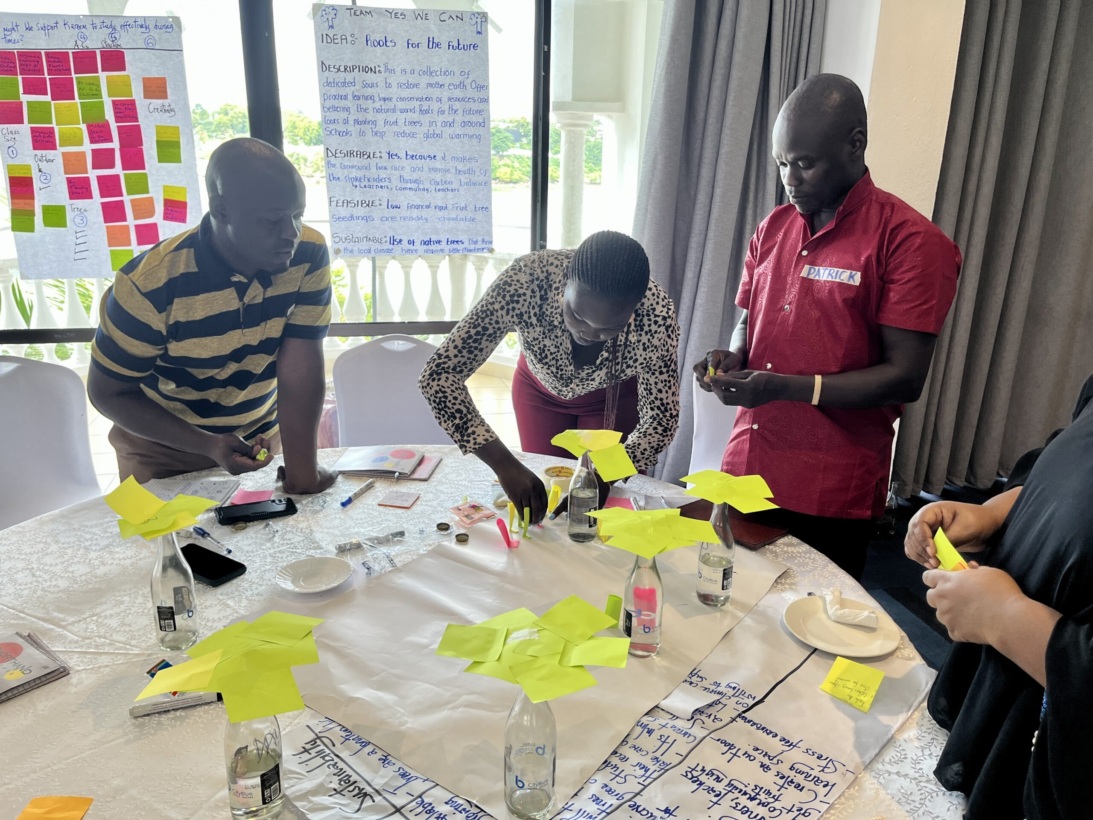
Farouk (far left) with his design team of fellow coaches from across the region working on their prototype
Among the participants was Farouk Musaazi, an instructor from Smart Girls, Uganda. Farouk was one of the first individuals we invested in as a coach, having participated in the testing process with Schools2030. “HCD has changed my way of doing things”, Farouk shared after the Coaching Conference, “it has helped me in everything I do.”
Smart Girls continues to leverage HCD to prototype and test learner-led solutions. With AKF’s support, they established a Tool Library to address a pain point of their alumni, “We noticed that when our alumni graduated, they struggled with getting that first job as a mechanic because they didn’t have the resources to buy the tools needed to do the job. And they needed the job to save to buy the tools. So, we sat with the girls, unpacked their needs, and we designed the Tool Library where alumni can rent and return tools to do their work, until they had the means to buy their own”, Farouk recounted.
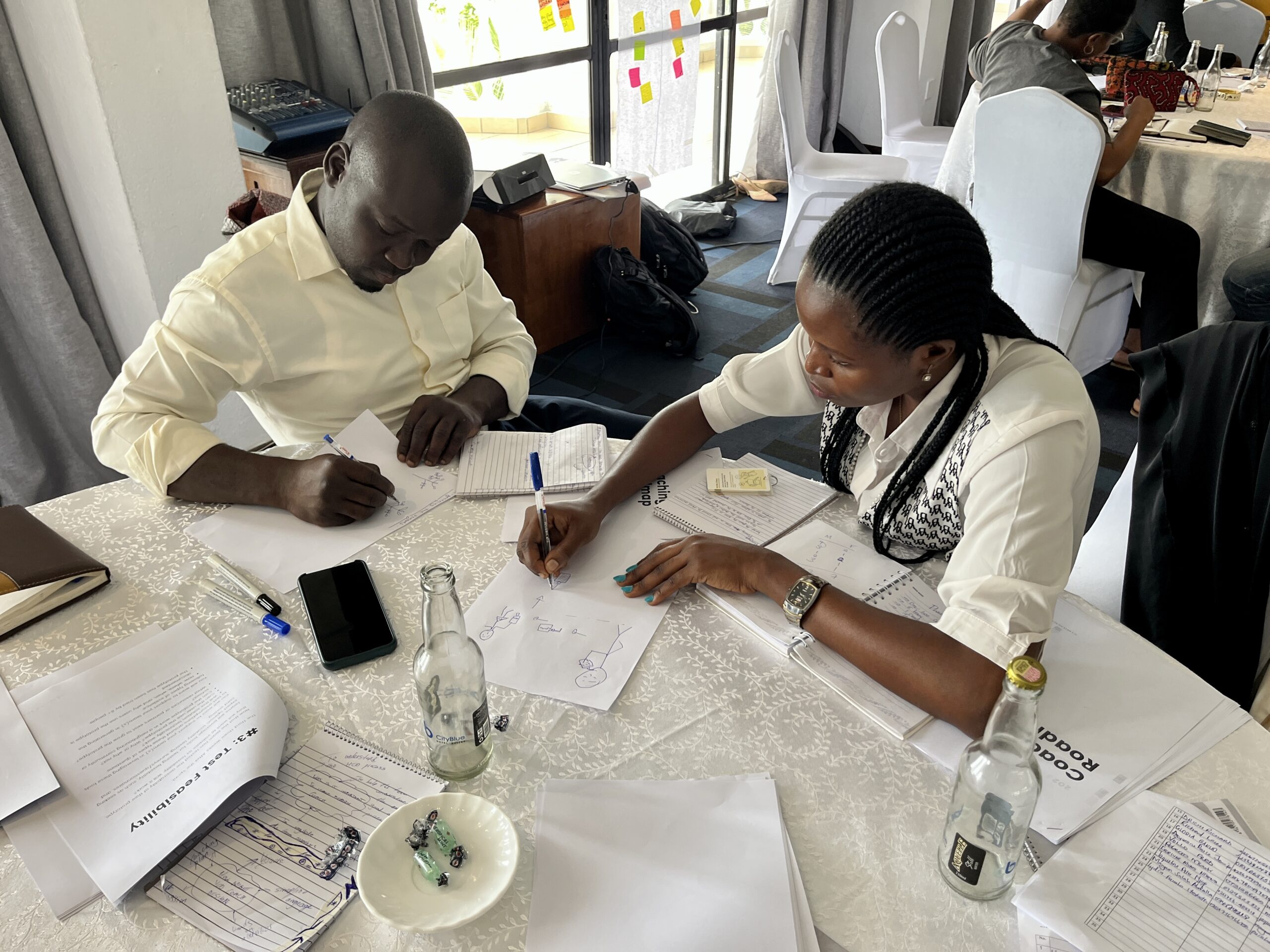
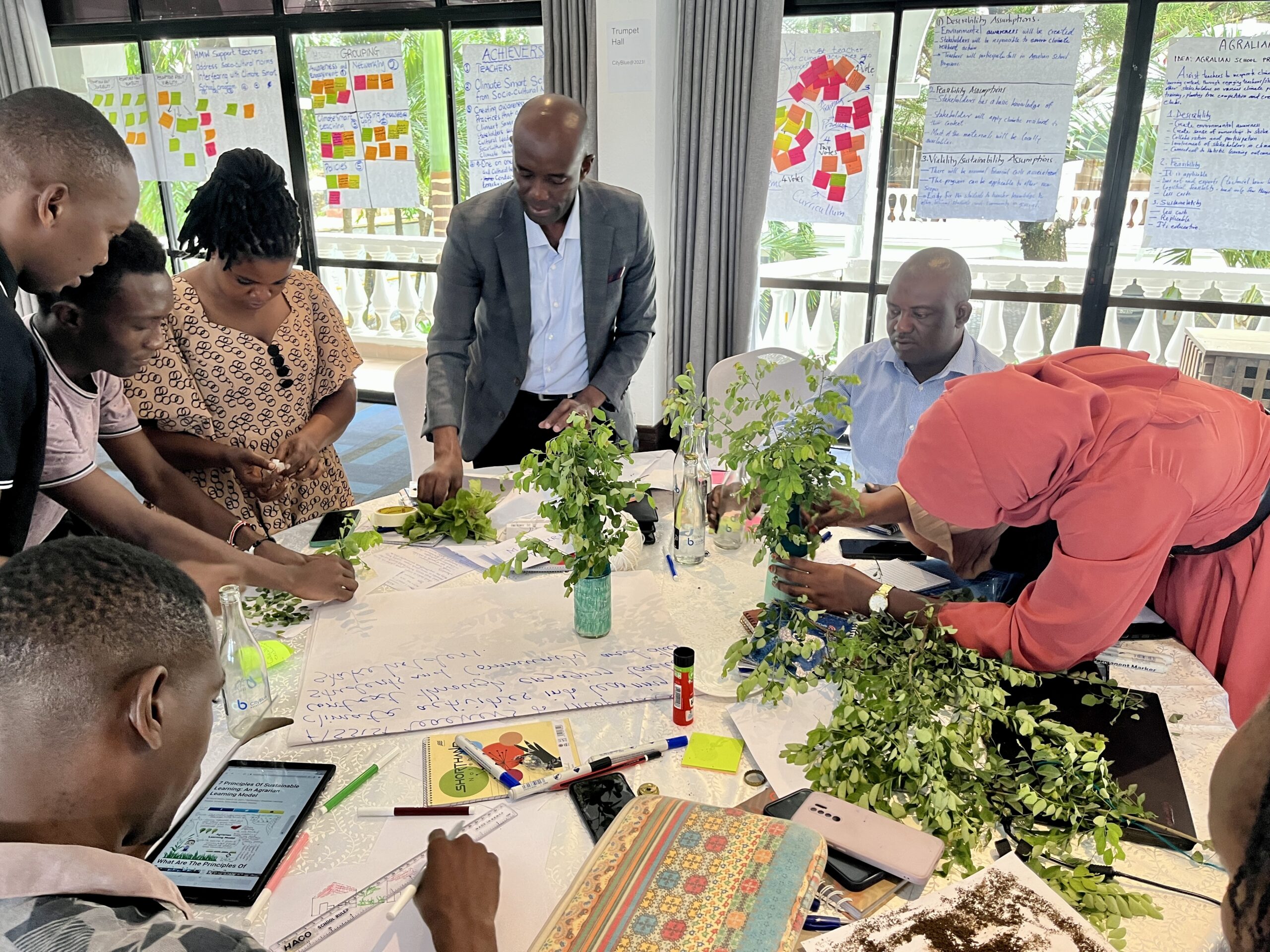
“HCD has changed my way of doing things. It has helped me in everything I do.”Farouk Musaazi, instructor at Smart Girls Uganda and design coaching participant
The conference not only marked Farouk’s first time in Kenya but also exposed him to design work and designers from outside his home country of Uganda. “It was exciting, I saw people have brilliant ideas, and it pushed me into more thinking and designing”, he shared. “I liked how detailed the process was and the openness of people in the room to learn and unlearn”.
Farouk and 44 other design coaches will now participate in a nine-month professional development course. They will apply the knowledge gained during the Coaching Conference to practical learning opportunities, including two phases of design team coaching – one with a current team and another with two additional teams in October.
Through supports and networks, such as design coaches, we will enhance design processes and their outcomes to further improve the capacity of CSOs and tackle the root causes of poverty for communities in the places where we work.
Learn more about HCD, innovation, and design at AKF
Written by Emilie Chiasson, AKF’s Design and Innovation Advisor in East Africa
Related News & Stories

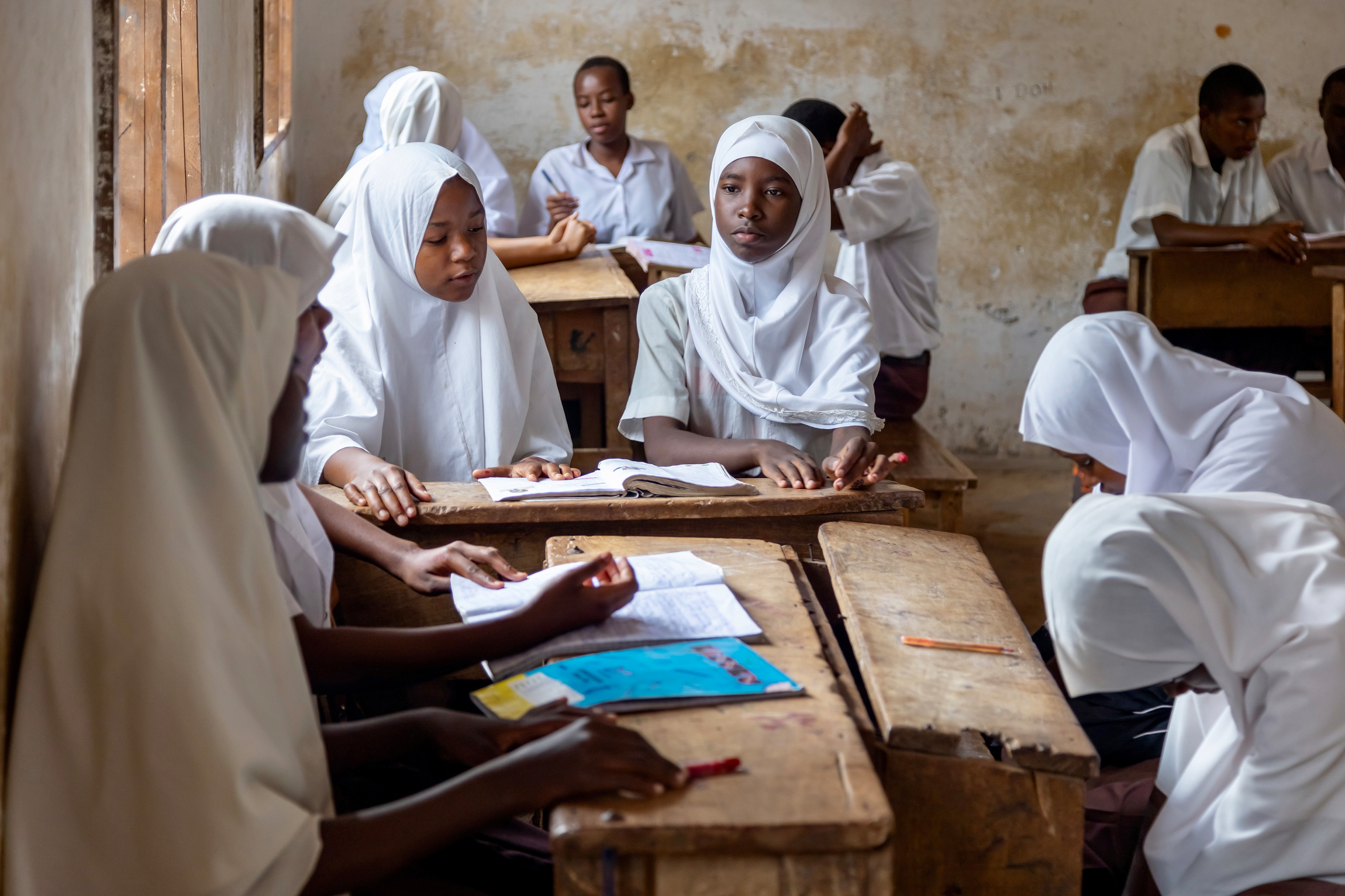
Teaching the watershed generation: How educators in Africa can shape the continent’s future

AKF and AKU to host the world’s first International Symposium on Artemisia

The Indian Ocean: How can coastal communities adapt to a rapidly changing environment?
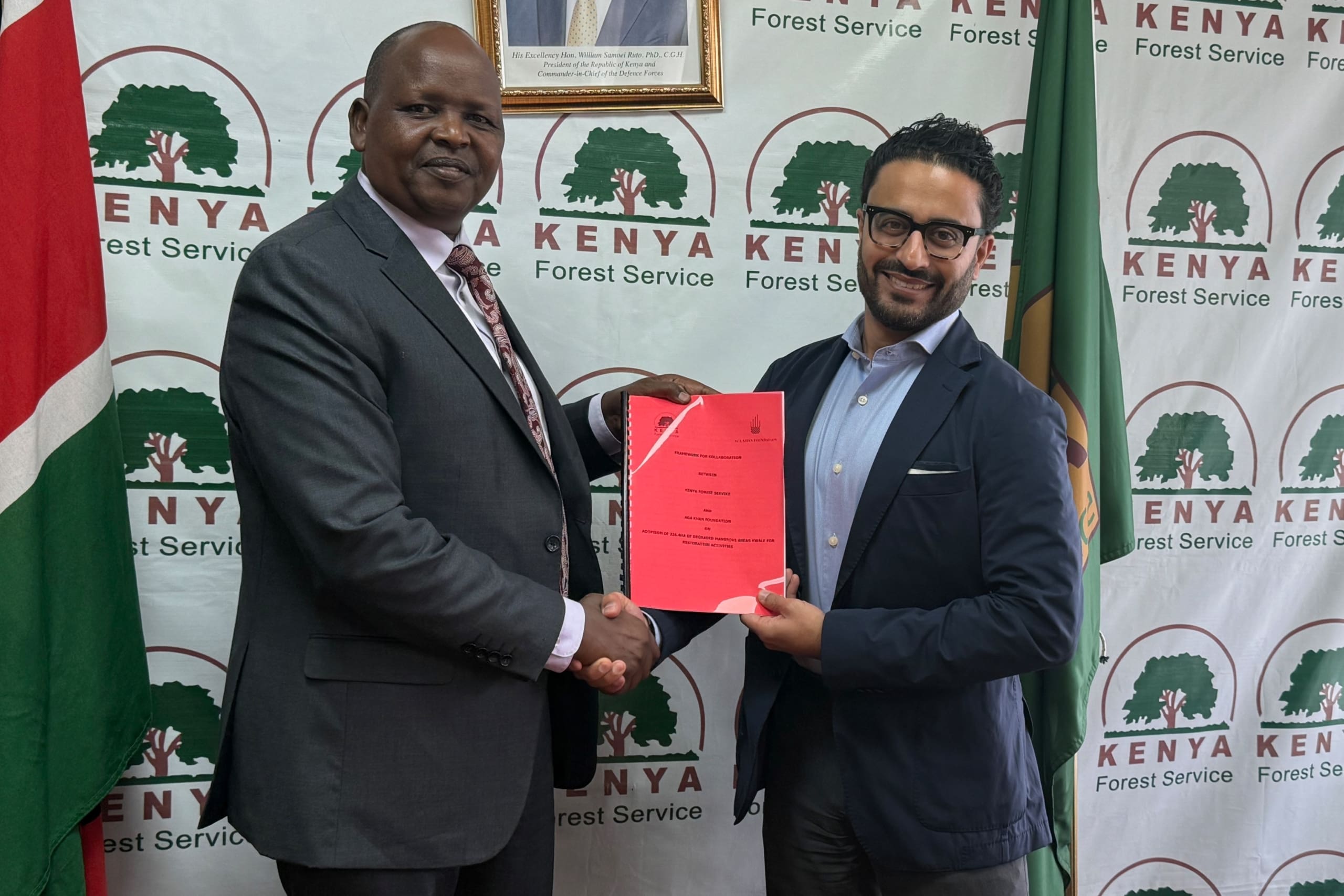
AKF to restore 226 hectares of mangroves in Kenya’s Gazi Bay

Community Roots, Global Reach: Four climate resilience lessons from Tanzania

Support our work Your donations are helping us build a future where we all thrive together.